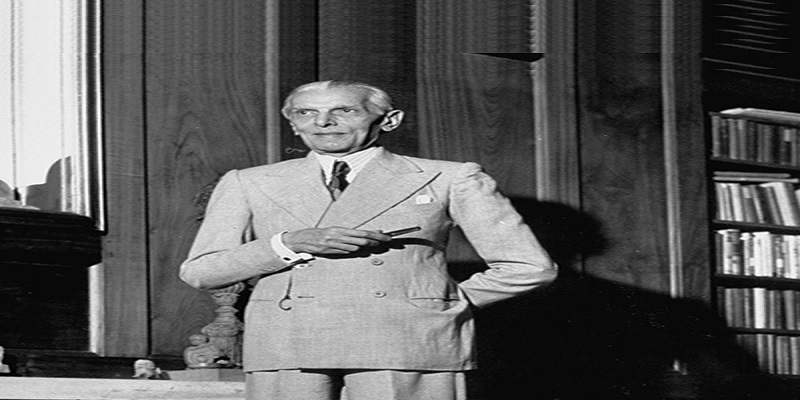Quaid-i-Azam Jinnah's Fourteen Points A Vision for Muslim Rights
The Fourteen Points of Quaid-i-Azam Muhammad Ali Jinnah, also known as the "Quaid's Fourteen Points," were a set of principles that outlined the political and constitutional demands of the Muslim League in British India. These points were presented by Jinnah on March 28, 1929, in response to the Nehru Report, which had been formulated by leaders of the Indian National Congress. The Nehru Report had neglected the concerns and rights of Muslims in India, and Jinnah's Fourteen Points aimed to safeguard the political rights and interests of the Muslim community. In this essay, we will explore each of the Fourteen Points in detail, providing historical context and examining their significance.
- Federalism:
Quaid's first point emphasized the establishment of a federal system in India, where the provinces would have significant autonomy and would be free to manage their internal affairs. This was a response to the centralizing tendencies of the Nehru Report, which proposed a strong central government with limited powers for the provinces.
- Provincial Autonomy:
The second point reinforced the idea of provincial autonomy, advocating for substantial powers to be devolved to the provinces. It sought to ensure that the provinces could make decisions on issues such as education, agriculture, and public health independently.
- Representation:
Jinnah's third point highlighted the need for adequate representation of Muslims in the central legislature. It proposed separate electorates and reserved seats to ensure that Muslims had a fair share of political power at the national level.
- Separate Electorates:
The fourth point focused on the continuation of separate electorates for Muslims. Jinnah argued that this system was necessary to safeguard the interests of the Muslim minority and to ensure that they had a voice in legislative bodies.
- Muslim Representation in Government Services:
Jinnah's fifth point demanded adequate representation for Muslims in government services. This was crucial to address the underrepresentation of Muslims in administrative and bureaucratic positions.
- Protection of Muslim Culture and Language:
Point six stressed the importance of protecting the culture, language, and rights of Muslims. It aimed to prevent the imposition of any particular culture or language that could marginalize the Muslim community.
- Religious Freedom:
The seventh point advocated for the freedom of Muslims to practice and propagate their religion without any hindrance. It sought to guarantee the rights of religious minorities in a future constitutional framework.
- Protection of Muslim Economic Interests:
The eighth point highlighted the economic concerns of Muslims, calling for measures to protect their economic interests. This included equitable distribution of resources and opportunities to prevent economic marginalization.
- Sindh's Separation from Bombay:
Point nine addressed the demand for the separation of Sindh from the Bombay Presidency. This was aimed at recognizing the distinct identity and cultural aspirations of the people of Sindh.
- Constitutional Reforms:
The tenth point focused on constitutional reforms. It emphasized that any future constitution for India should be framed with the consent of all communities and should safeguard the rights and interests of minorities.
- Muslim Majority Areas:
Point eleven highlighted the principle that areas with a Muslim majority should not be arbitrarily included in provinces where non-Muslims were in the majority. This was crucial for ensuring that Muslim-majority regions had political autonomy.
- Protection of Muslim Land Rights:
The twelfth point sought to protect the rights of Muslim landowners. It aimed to prevent any discriminatory measures that could undermine the economic well-being of Muslim landholders.
- One-Third Muslim Representation:
Jinnah's thirteenth point proposed that Muslims should have one-third representation in the central legislature. This was a numerical safeguard to ensure that the political rights of Muslims were not overshadowed by the Hindu majority.
- Separate Settlements:
The fourteenth point addressed the issue of separate settlements for Muslims. It aimed to prevent the forced amalgamation of Muslim-majority areas into Hindu-majority provinces.
The Fourteen Points of Quaid-i-Azam Muhammad Ali Jinnah were a comprehensive set of principles designed to protect the political, economic, and cultural rights of Muslims in British India. These points reflected the concerns of the Muslim League regarding the neglect of Muslim interests in the Nehru Report. The demand for federalism, provincial autonomy, adequate representation, and protection of minority rights were central themes that aimed to ensure a fair and just political system for all communities in India. The Fourteen Points played a crucial role in shaping the political discourse and negotiations that eventually led to the creation of Pakistan in 1947.

